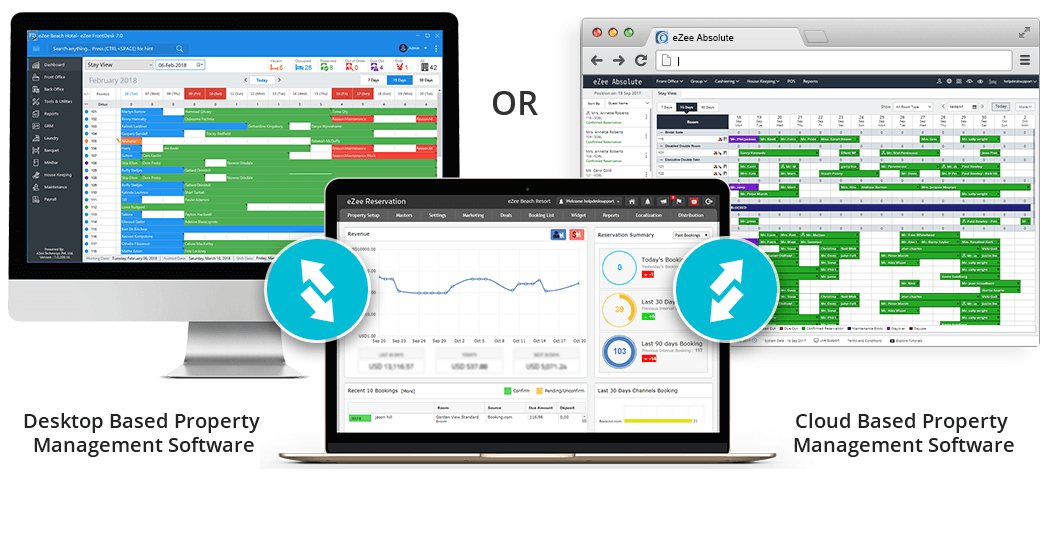As hoteliers move toward a data-driven world, they need to think about ways to leverage Big Data and Artificial Intelligence to boost direct sales and improve profitability. The use of smart technology allows hotels to provide instant and customized experiences to their guests. By implementing that approach to tools like hotel reservation software, hoteliers will be able to engage customers in the hotel direct booking process and drive sales to new heights. Market research firm Research and Markets has forecast that the global smart hospitality market will expand at a CAGR of 13.14 % between 2020 and 2025, reaching a size of $12.727 by 2025. This shows that it is the right time for hotels to accept Big Data and AI as a partner and leverage them to improve their business and the bottom line. In this blog, we are going to talk about Big Data and AI can help hotels drum up direct bookings and increase profits.
1. Targeting the right audiences using data insights
The first step to delivering a smart guest experience is to get them in the door; that’s where smart marketing comes into the picture. Hoteliers can now gain a more complete picture of their guests with the help of smart technology. A hotel that integrates data insights into its operations will eventually succeed in the face of increased market competition.
2. Boost direct bookings via a hotel reservation software
Booking engines or reservation software for hotels are a total boon. Using them, you can complete all bookings without spending any money on commissions. In addition, what a dream would it be if these booking engines were also intelligent and smart? The best part about this dream is that it is in fact now a reality. Booking engines powered by Artificial Intelligence (AI) gather relevant data each time a guest or a potential guest interacts with the website. Advanced sophisticated learning models are used by these engines to learn about customer behavior via data analysis to offer a relevant quote. Over and above, certain engines ensure more direct sales by utilizing AI to engage the hotel and the guest in a conversation.
3. Revenue management to the aptest room rate
To maximize revenue, your revenue management system optimizes the availability and pricing of your rooms. They ensure that the right room is sold to the right guest at the right time using an apt channel. Hotels that use data to power revenue management are more likely to predict consumer demands and to analyze trends in customer behavior. Furthermore, due to its automation, it analyses as well as consolidates heaps of data coming in from various sources.
4. Operational analytics to streamline hotel operations
Business intelligence as well as similar profiles such as data analysis has been around for a while. These stand to be two of the most crucial aspects of any business. There’s also something called operational analytics that combines business intelligence and data analysis. More often than not, hoteliers also need to direct their attention to the internal workings of the properties. This would exactly be where operational analytics comes as a savior. With the assistance of machine learning, artificial intelligence, and data mining, operational analytics evaluates the real-time operational functions to improve efficiency and streamline processes.
5. Smart chatbots to connect with guests
The hospitality sector is already touched by the boon that is chatbots. They are thus far running routine customer service inquiries in numerous hotels as well as other industries. However, by boosting the AI capabilities of chatbots, they can become more sophisticated and useful both as a mobile application or in-room voice-activated devices similar to Hey Google/Alexa. AI-powered smart chatbots are the future of guest management. They will soon engage in guest activities including suggesting restaurants nearby, describing local activities, ordering meals, booking tickets, booking stays in the reservation management software, and more.
6. Surprise guests through the use of a digital concierge
Digital/Virtual concierge is a CX or customer experience technology that enables the guests with contextual and conversational assistance. It could either be in the form of a chatbot, a web platform, or even a robot. AI is what powers most of these virtual concierges. Furthermore, hotels can also offer contactless services like mobile check-outs and check-ins using these technologies.
7. Use Big Data to offer personalization
Personalized recommendations and filtering out unnecessary information can significantly boost conversions of online customers who lack attention & time to start with. Hotels can predict the types of offers and contents that will be appealing to their potential guests with the help of data from different factors and touchpoints such as history, purchase, preferences, location, etc.
It is a fact that businesses that leverage big data will in turn deliver more personalized & relevant customer experiences. This will make them more customer-centric and will also increase their conversion rates.
8. Remote check-in/check-outs to save your staff’s time
Hotel owners can save considerable amounts of money on labor costs by warranting guests to remotely check in/check-out via mobile devices. It also helps that 62% of guests said they would prefer using an app to check-in. In addition to alerting hotel staff when guests arrive, this technology assists hotels to provide guests with a personalized experience as well as enables hotels to offer better upsells.
Data science and AI are here to stay in the hospitality sector. They have rightly influenced numerous industries for the better over the years. Artificial intelligence is viewed in suspicion by many and as a job-loss threat. That is not the case in reality. Efficiency in jobs and overall experience is what AI and data science ensure. Notable changes are witnessed by hotels that have turned to this automation and it is only set to get better with passing time.
